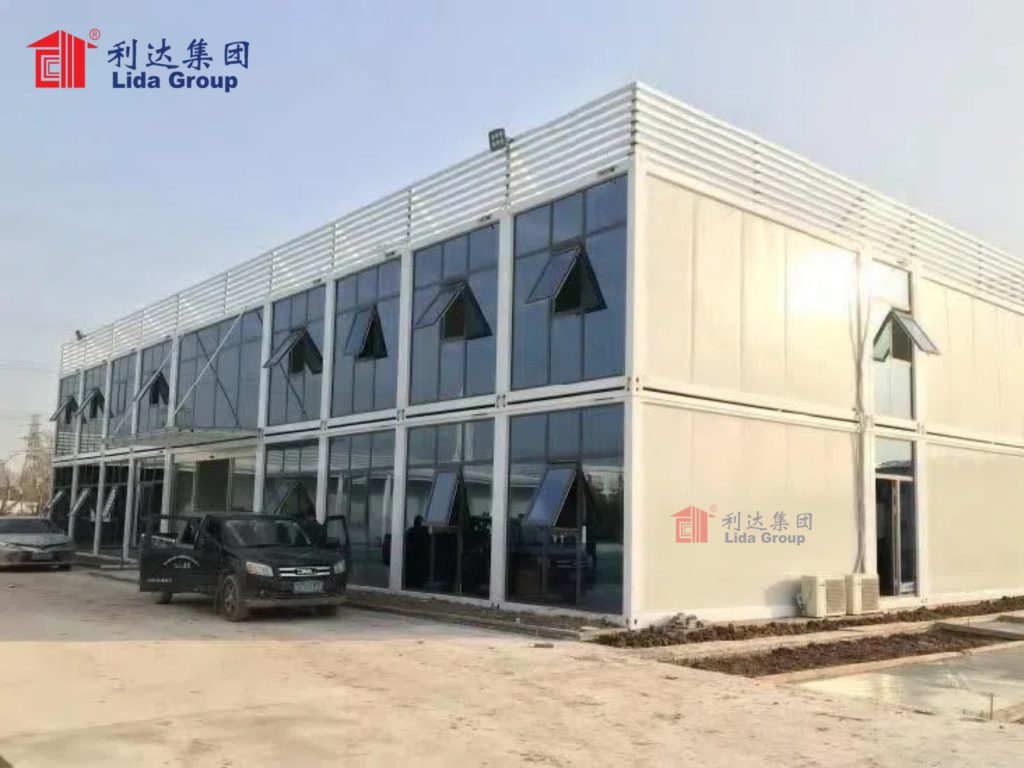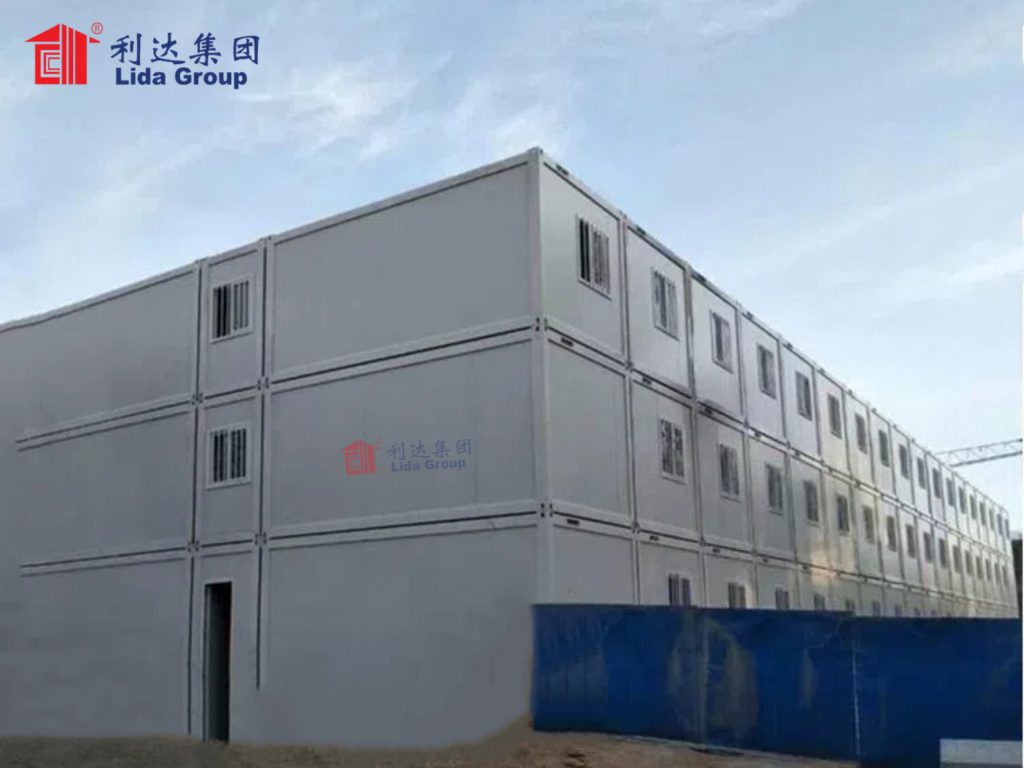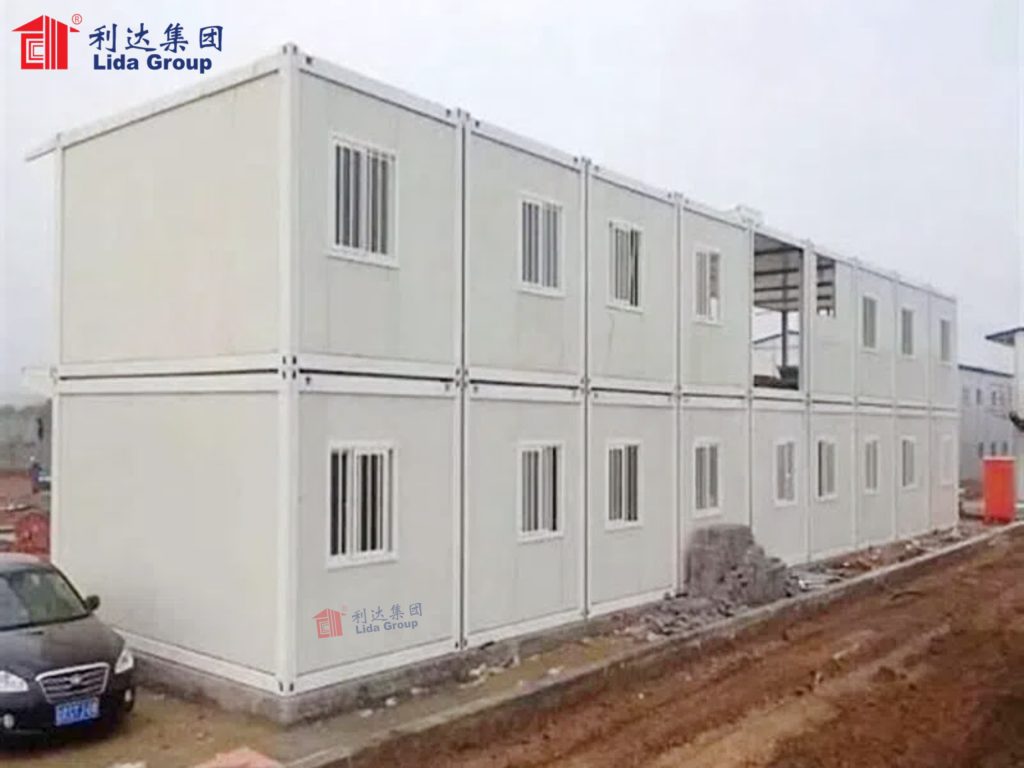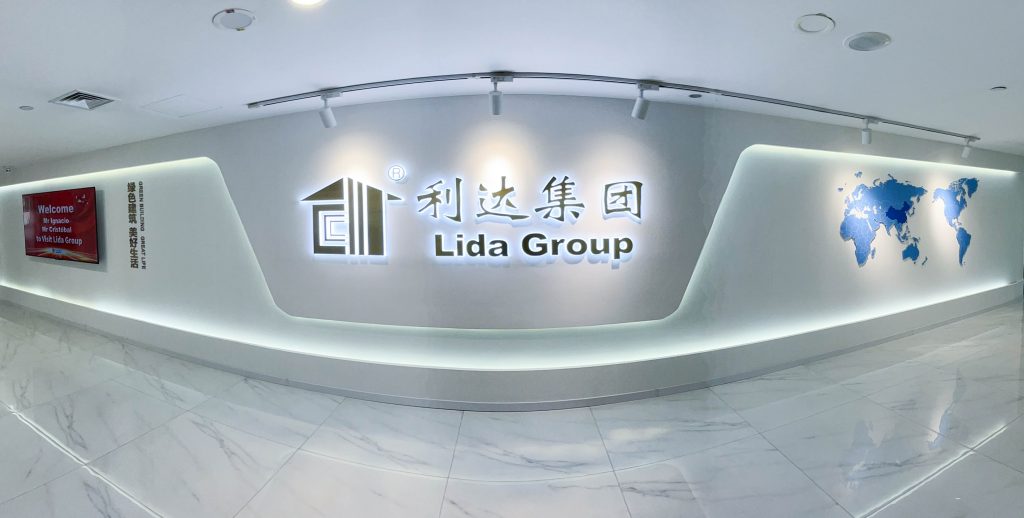**Introduction: The Challenge of Remote Site Accommodation**
The engines of global progress—mega-infrastructure projects, remote mining operations, and large-scale industrial plant construction—are often powered by a dedicated workforce stationed far from urban centers. These remote sites present a formidable challenge that extends beyond the primary engineering feat: how to house hundreds or thousands of workers in a manner that is not only logistically feasible but also humane, comfortable, and conducive to well-being and productivity. For decades, the standard solution has been a spectrum of inadequacy, ranging from basic, draughty tents to hastily erected, low-quality pre-cast concrete buildings. These traditional accommodations are frequently characterized by poor insulation, inadequate sanitation, limited privacy, and a general lack of amenities, leading to low worker morale, high turnover rates, and reduced on-site efficiency.
The paradigm is shifting. The recognition that a well-rested, content, and healthy workforce is a safer and more productive one is driving a revolution in remote site living. At the forefront of this transformation is Lida Group, a pioneer in prefabricated construction, whose advanced container building systems are redefining the very concept of a labor camp. Moving far beyond the simplistic idea of a “shipping container conversion,” Lida employs sophisticated engineering, human-centric design, and integrated technology to create turnkey communities that offer comfort, durability, and a surprising sense of normalcy in the most challenging environments. This article explores how Lida Group’s prefabricated container systems are delivering unmatched comfort and transforming the remote site living experience for the global workforce.

**Chapter 1: The Legacy of Discomfort – Why Traditional Labor Camps Fail**
To appreciate the transformation, one must first understand the shortcomings of the status quo. Traditional labor camp solutions fail on multiple fronts:
1. **Thermal Inefficiency:** Thin walls, poor insulation, and single-pane windows make units unbearably hot in desert climates and painfully cold in arctic conditions. This not only causes discomfort but also leads to exorbitant energy costs for inadequate heating and cooling.
2. **Acoustic Discomfort:** Noise transmission is a significant issue. The sound of generators, neighboring conversations, and weather conditions creates a constant disturbance, preventing restful sleep and privacy.
3. **Poor Air Quality and Ventilation:** Mould, dampness, and stale air are common in poorly ventilated units, leading to health issues. In dusty environments, inadequate sealing allows particulate matter to infiltrate living spaces.
4. **Inadequate Sanitation:** Centralized bathroom facilities are often located far from living quarters, are difficult to keep clean, and can become unsanitary due to overuse and inadequate maintenance.
5. **Psychological Deterioration:** The bleak, institutional, and often cramped environment of traditional camps contributes to feelings of isolation, stress, and low morale among workers, negatively impacting their mental health and their willingness to remain on the project.
6. **Logistical Nightmares:** Transporting bulk materials to a remote site and managing a prolonged, weather-dependent construction schedule is incredibly costly and inefficient.
Lida Group’s approach is engineered to systematically dismantle each of these failings.
**Chapter 2: The Lida Group Philosophy – Engineering Comfort from the Ground Up**
Lida Group’s methodology is rooted in a core belief: remote should not mean substandard. Their philosophy integrates three fundamental principles:
1. **Human-Centric Design:** Every decision is made with the end-user—the worker—in mind. Comfort, privacy, safety, and well-being are not afterthoughts but the primary design drivers.
2. **Fabrication-First Precision:** By shifting over 90% of the construction process to a controlled factory environment, Lida achieves a level of quality, consistency, and integration that is impossible to replicate with on-site building methods.
3. **Holistic Community Planning:** A labor camp is not just a collection of bedrooms. It is a temporary home. Lida designs complete ecosystems that include accommodation, dining, recreation, and administrative facilities, fostering a sense of community and normalcy.

**Chapter 3: Deconstructing Comfort – The Engineering Pillars of Lida’s System**
The unparalleled comfort of Lida’s complexes is not accidental; it is the direct result of targeted engineering innovations.
**3.1. Superior Thermal Performance: A Sanctuary from the Elements**
This is the cornerstone of physical comfort. Lida’s systems are engineered to create a stable, pleasant indoor climate regardless of external conditions.
* **High-Performance Insulation:** Walls, roofs, and floors are integrated with thick layers of non-combustible rock wool or high-density polyurethane foam (PUR/PIR). These materials have exceptionally high R-values, creating a powerful thermal barrier.
* **Thermal Break Technology:** The steel framework of shipping containers is a natural conductor of heat and cold (a “thermal bridge”). Lida’s engineering incorporates thermal breaks—materials with low thermal conductivity—within the wall structure to prevent outside temperatures from bleeding into the interior, eliminating cold spots and condensation.
* **Double-Glazed Windows:** Standard issue is dual-pane, argon-filled glazing. This dramatically reduces heat transfer compared to single-pane glass and provides excellent acoustic insulation.
The result is a unit that stays cool in extreme heat and warm in severe cold with minimal energy input, significantly reducing HVAC operational costs and providing a consistently comfortable environment.
**3.2. Acoustic Insulation: The Sound of Silence**
Peace and quiet are critical for rest and mental recovery. Lida’s modules are designed to mitigate both external and internal noise.
* **Mass-Loaded Vinyl (MLV) and Damping Compounds:** These dense, flexible materials are added within wall and ceiling cavities to absorb sound vibrations and prevent them from transmitting through the structure.
* **Acoustic Batting:** The insulation used not only traps temperature but also sound waves, dampening noise from adjacent units, corridors, and outside the building.
* **Floating Floor Systems:** Interior floors can be decoupled from the main structural floor using resilient underlays, preventing impact noise (footsteps, dropped objects) from traveling between modules.
This meticulous attention to acoustics ensures that workers can sleep, read, or relax without disturbance, a luxury rarely found in remote accommodations.
**3.3. Indoor Environmental Quality (IEQ): Breathing Easy**
Comfort is also about the air one breathes.
* **Integrated Ventilation Systems:** Units are equipped with energy recovery ventilators (ERVs) or heat recovery ventilators (HRVs). These systems continuously exhaust stale, humid air while bringing in fresh, filtered air from outside. They transfer energy (heat or coolness) from the exhaust air to the incoming air, maintaining comfort without wasting energy.
* **Air Filtration:** Advanced filtration systems on HVAC and ERV units remove dust, pollen, and other airborne particulates, which is crucial for health in dusty desert or industrial environments.
* **Low-VOC Materials:** Interior finishes, such as paints, adhesives, and composite boards, are specified for low Volatile Organic Compound (VOC) emissions, ensuring better indoor air quality and preventing the “new build” smell that can cause headaches and respiratory irritation.
**3.4. Sanitary and Plumbing Innovations: Dignity and Hygiene**
Lida redefines sanitation in remote settings.
* **Prefabricated Wet Units:** Entire bathrooms and shower pods are manufactured off-site as complete, sealed modules. They feature modern, easy-clean fixtures, anti-leak plumbing systems, and efficient water traps. This eliminates the leaks and mould growth common in poorly built on-site bathrooms.
* **Flexible Configurations:** Solutions range from private en-suite bathrooms in executive units to highly durable, easy-to-maintain centralized facilities designed for high traffic. These are equipped with robust water heaters and water-saving fixtures to manage resource consumption.

**Chapter 4: Beyond the Bedroom – Crafting a Community**
Comfort is holistic. It extends beyond the four walls of a sleeping quarter. Lida’s master planning creates environments that combat isolation and foster well-being.
* **Mess Halls and Kitchens:** Spacious, well-ventilated, and brightly lit dining areas are created by combining modules. These are designed to be social hubs where workers can enjoy nutritious meals in a pleasant setting.
* **Recreational Facilities:** Modules are transformed into gyms, television rooms, reading lounges, and game rooms. Providing these outlets for relaxation and social interaction is critical for mental health and morale.
* **Laundry Facilities:** On-site, automated laundry rooms with industrial-grade washers and dryers provide a crucial everyday convenience.
* **Office and Clinic Modules:** Dedicated spaces for administration and basic medical care ensure the camp is self-sufficient and responsive to worker needs.
* **Aesthetic Design:** Exteriors are finished with attractive cladding and coordinated color schemes to avoid a stark, industrial look. Interior design employs color psychology, ergonomic furniture, and adequate lighting to create warm and inviting spaces.
**Chapter 5: The Integrated Value: Speed, Durability, and Sustainability**
The focus on comfort does not come at the expense of practicality. Lida’s system integrates core advantages that make it a superior choice overall.
* **Rapid Deployment:** Factory fabrication occurs concurrently with site preparation. On-site, modules are simply lifted into place and connected, reducing construction time by up to 70% compared to traditional methods. This means workers move into comfortable accommodations faster.
* **Uncompromising Durability:** Built from weathering steel and engineered to international structural codes, these complexes can withstand harsh weather, heavy loads (for multi-story stacking), and years of rigorous use.
* **Inherent Sustainability:** The prefabrication process generates up to 70% less waste than traditional construction. The superior insulation drastically reduces energy consumption for heating and cooling. Furthermore, the modules are inherently reusable and relocatable, embodying the principles of a circular economy.

**Conclusion: Setting a New Global Standard for Workforce Welfare**
Lida Group’s prefabricated container building systems represent a quantum leap in the design and delivery of remote site accommodations. By applying rigorous engineering principles, advanced materials science, and a profound commitment to human-centric design, they have successfully dismantled the old paradigm of discomfort and replaced it with a new standard of living.
The transformation is multifaceted. It is environmental, providing a thermally and acoustically superior sanctuary from harsh climates. It is physiological, ensuring clean air, modern sanitation, and hygienic living conditions. And perhaps most importantly, it is psychological, creating communities that offer dignity, privacy, recreation, and a sense of normalcy to a workforce that is often separated from home for extended periods.
This commitment to unmatched comfort is not merely a ethical imperative; it is a strategic investment for project owners. A comfortable workforce is a more stable, safer, healthier, and significantly more productive asset. It leads to higher retention rates, lower recruitment costs, and enhanced overall project efficiency. In the competitive global landscape for talent, providing high-quality living conditions is a powerful differentiator.
Lida Group has moved beyond simply supplying buildings; they are providing holistic well-being solutions. They have proven that even in the most remote and challenging locations, it is possible to create living environments that are not just adequate, but truly comfortable, safe, and modern. In doing so, they are not only transforming remote site living but are also championing a higher standard for workforce welfare across the globe, proving that progress in infrastructure should be matched by progress in the quality of life for those who build it.

Related news
-
Lida Group's Advanced Engineering Ensures Rapid Assembly of High-Quality Container House Complexes for Labor Camps
2025-09-17 15:53:24
-
Sustainable and Secure: Lida Group's Container Labor Camp Designs Feature Eco-Friendly Prefab Building Technologie
2025-09-16 17:47:40
-
Why Major Infrastructure Projects Choose Lida Group's Prefab Container Building Systems for Durable Labor Camp Solutions
2025-09-16 16:01:13
contact us
- Tel: +86-532-88966982
- Whatsapp: +86-13793209022
- E-mail: sales@lidajituan.com


